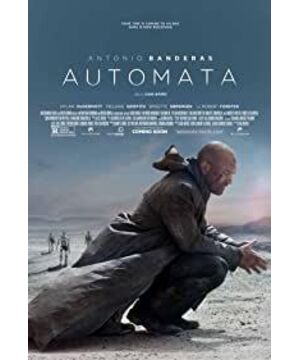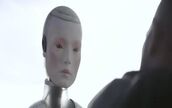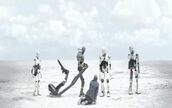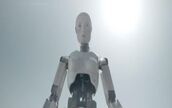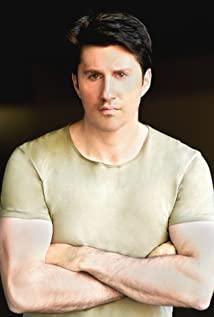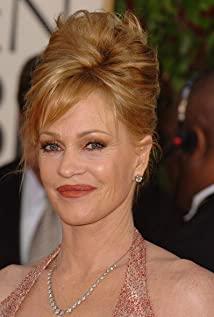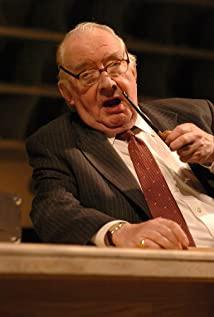Although it is a science fiction film in English, this film is actually an authentic Spanish film, so its momentum is definitely not better than a Hollywood movie with rich money. This film can't provide the kind of visual feast of Hollywood science fiction films, so I have to do my best in literary and drama. It should be said that this film is a qualified literary science fiction film. Although it does not propose particularly novel insights, it can always arouse some emotions in the audience and arouse some resonance. If you want to make an analogy, this film can be regarded as "The Rise of the Apes" is a blend of "The Rise of the Apes". It has a sense of desolation similar to "After", and like "After", it has said a lot of principles, and still has a bad life. The visual sense of "Rise of the Apes" is even more obvious. The plot progress in the second half of the film and the rate of synchronization with "Rise of the Apes" are constantly increasing, and the most classic line of the film also happens to include the ape "Ape" This word. It seems that the robot that said the line is still voiced by Javier Baden. However, in addition to the intersection with the above two movies, what this film lacks happens to be their most commercial selling points: the funny scenes of "Afternoon" and the gorgeous visual effects of "Rise of the Apes". The film therefore appears dry and unattractive.
Without comedy and big scenes, the only person who can serve as the signature of this film is the uncle Antonio Banderas who is widely known in the world. People like me who have been in contact with Uncle Ban from the "Murder Trilogy" are used to seeing him look like a handsome prodigal with flowing hair, facing the ordinary bald-headed family man he plays in this film. Can't find a point. Although this character has undergone a three-view reconstruction and a change of position in the second half of the film with the progress of the plot, it appears to be rich in layers, but it is not a wonderful character after all. This is no wonder, because just as the real protagonist of "Rise of the Apes" is the monkeys headed by the monkey king Caesar, this film focuses on the group of seemingly clumsy robots. Uncle Ban is like "Rise of the Apes" Like Fu Lanlan in "", she is willing to serve as green leaves and foil. In terms of actors, there is actually a gimmick in this film, that is, this should be the last film in which Antonio Banderas and Melanie Griffith participated in the form of a husband and wife. When the film was shot, they were still a model couple who had been hand in hand for more than ten years, but they had broken up when it was released, and things are fickle. Melanie starred in the film as a robot expert who beats soy sauce. It didn't take long for her to show her face and received a lunch because she was tricked by a bear kid. But the first protagonist of the film, the prostitution robot Creo, is also voiced by her. Thinking about it this way, she still has a lot of rivalries with Banderas, who was still her husband at the time.
In "The Rise of the Apes", human beings don't put monkeys in their eyes at all, but in the end they don't die, and finally caught fire. In this film, human beings were very aware of the potential threats when they invented the robot, so they were fully guarded and tried every means to suppress and block the robot's awakening and evolution. It’s a pity that in the end there is still a boundless decline and endless rivers rolling in. When robots learn to care for their bodies and even learn to reproduce their offspring in their own unique ways, humans will eventually have to hand over the baton to them and wait for them to embark on history. The center of the stage. In this regard, the film is also different from Hollywood movies of similar themes. Hollywood’s filming of the rise of robots generally implies a layer of warning and reflection, reminding us of the potential threat of over-reliance on technology. In this film, it was shown from the very beginning that robots are completely harmless to humans (except that Creo’s son killed the villain in order to save the hero, but it is also completely different from the evil killing machines commonly seen in Hollywood movies. Going on). Regarding the helpless reality that robots will eventually replace humans, the director seems to be more calm.
In the section where three robots make baby robots, the background music is magnificent, which brings out a sense of ritual. In the eyes of the robots, what they are doing at this time is the same serious work about the birth of a new life as a human childbirth. The shape of the mechanical baby who was finally "successfully delivered" is really unacceptable for humans. Robots are much more pragmatic than humans. Creo sees cockroaches crawling around in the desert where humans are difficult to survive. Naturally, he will choose this kind of body structure that can enhance the life tenacity index and abandon humans’ impractical two feet. The upright body shape is used as the appearance of his son. Also from a practical point of view, she didn't bother to teach her son how to talk. If there is a sequel to the film, consider this development: Creo still did not escape the pursuit of humans in the end, before dying to Jacques Togo, played by Banderas. Since then, Jacques and Clio’s son have shared the joys and sorrows and depended on each other for several years. He has been teaching him and raising him like his own flesh and blood, and he has given him the name of a human child, which means that he will grow up and be healthy.
View more about Automata reviews


